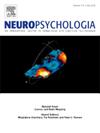The categorical effect of negative emotion on memory before and after sleep deprivation
IF 2
3区 心理学
Q3 BEHAVIORAL SCIENCES
引用次数: 0
Abstract
Background
Human memory tends to bias negative over neutral information. Recent evidence suggests that this bias may be due to a categorical effect of emotionally salient information, which diminishes when negative information is less frequent. Moreover, sleep loss has been shown to impair memory. Here, we aimed to replicate this categorical–over valence–bias for emotional information and determine the influence of total sleep deprivation (TSD) on this effect.
Methods
Forty-four healthy adults completed two learning-and-memory tasks: once before and once after a night of TSD. In each task, they were presented with 100 words ranging from neutral to negative. Participants were randomized into a “high” (50 % of words were negative) or “low” (12.5 % negative words) frequency condition. Recognition memory was assessed after a brief delay.
Results
Contrary to our hypothesis, we did not observe a shift in negative memory bias based on frequency condition. Before TSD, participants in both conditions (“high” and “low”) recalled more negative words than neutral words. Memory was impaired after TSD, for both negative and neutral words, yet a similar negative memory bias persisted across both the high and low frequency conditions, as measured by hit rate and sensitivity. Despite an absence of interaction between valence and condition, we observed a condition-related difference after TSD, with participants in the “low” condition adopting a more liberal response strategy, demonstrating a greater tendency to label all words as old compared to those in the “high” condition.
Conclusions
A significant memory bias for negative words was present for both frequency conditions, both before and after TSD. While we were unable to replicate the loss of an emotional memory bias with altered frequency, we did find some evidence that frequency may interact with sleep loss to influence response strategy.
睡眠剥夺前后负面情绪对记忆的范畴效应。
背景:人类的记忆倾向于对中性信息的负面偏见。最近的证据表明,这种偏见可能是由于情绪显著信息的分类效应,当负面信息不那么频繁时,这种影响就会减弱。此外,睡眠不足已被证明会损害记忆。在这里,我们的目标是在情绪信息中重复这种类别-价格-偏倚,并确定完全睡眠剥夺(TSD)对这种效应的影响。方法:44名健康成人完成了两项学习和记忆任务:一次在创伤后应激障碍前,一次在创伤后应激障碍后。在每项任务中,他们都会看到100个从中性到消极的单词。参与者被随机分为“高”(50%的词是负面的)或“低”(12.5%的词是负面的)频率条件。在短暂的延迟后评估识别记忆。结果:与我们的假设相反,我们没有观察到基于频率条件的负性记忆偏差的转移。在创伤后应激障碍之前,两种情况下(“高”和“低”)的参与者都比中性词汇回忆起更多的消极词汇。在创伤后应激障碍后,消极词汇和中性词汇的记忆都受到了损害,但在高频率和低频率条件下,类似的消极记忆偏差仍然存在,这是通过命中率和灵敏度来衡量的。尽管价和条件之间没有相互作用,但我们观察到创伤后应激障碍后条件相关的差异,与“高”条件下的参与者相比,“低”条件下的参与者采取了更自由的反应策略,表现出更大的倾向于将所有单词标记为旧的。结论:在ptsd前后两种频率条件下,消极词的记忆偏差均显著。虽然我们无法通过改变频率来复制情绪记忆偏差的丧失,但我们确实发现了一些证据,表明频率可能与睡眠不足相互作用,从而影响反应策略。
本文章由计算机程序翻译,如有差异,请以英文原文为准。
求助全文
约1分钟内获得全文
求助全文
来源期刊

Neuropsychologia
医学-行为科学
CiteScore
5.10
自引率
3.80%
发文量
228
审稿时长
4 months
期刊介绍:
Neuropsychologia is an international interdisciplinary journal devoted to experimental and theoretical contributions that advance understanding of human cognition and behavior from a neuroscience perspective. The journal will consider for publication studies that link brain function with cognitive processes, including attention and awareness, action and motor control, executive functions and cognitive control, memory, language, and emotion and social cognition.
 求助内容:
求助内容: 应助结果提醒方式:
应助结果提醒方式:


